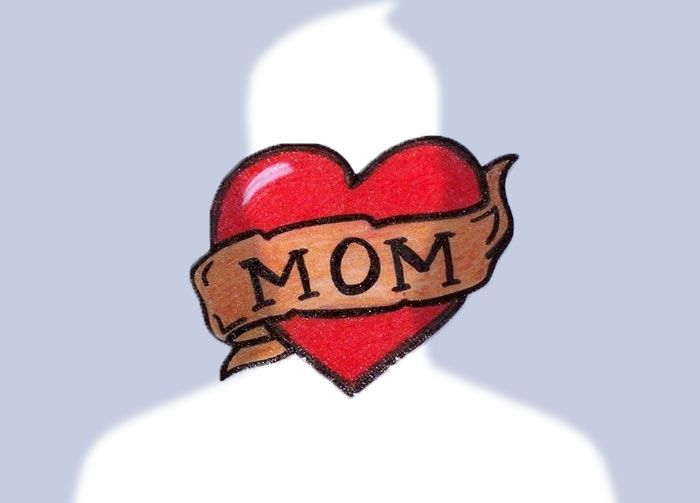
Facebook has released some truly awesome statistics about your embarrassing parents and how weird they get on your Facebook timeline.
In a breakdown of how families interact on social media, data scientist and Facebook employee Moira Burke shows us a few surprising facts: A child is least likely to add their parent as a friend around age 20. And daughters are much more likely to initiate Facebook-based communication than sons are. Daughters are strangely infantilized in comments and posts, and parents just loooove posting Kenney Chesney videos to their kids’ walls.
“We investigated anonymized and automatically processed posts and comments by people self-identified as parents and children to understand how conversation patterns with each other might be a bit different from those with their other friends,” Burke wrote today on the company blog.
Although the data was stripped away from individual identities and broken into one-, two-, and three-word segments for processing, Burke said, “We are happy to see that our data surfaces the affection, care, and closeness of family ties.”
The research starts with the initial friendship requests. In spite of the well-worn phrase, “I’m not your friend; I’m your parent!” — those words so endearing to moody teenagers — parents are more likely to initiate a friendship on Facebook than are their offspring for most age groups. That stat is only reversed for young teenagers; for 13-year-olds, for example, the child sends the friendship request in 65 percent of cases. Once the child is 20 years old or so, that stat drops to 40 percent.
When it comes to ongoing communication, parents and daughters are relatively equally chatty with one another. Sons, not so much, as you can see from the charts below.
But the weirdest part (at least to this gender studies minor and loyal Bitch subscriber) is the terminology used in wall posts for sons and daughters and, to a lesser extent, mothers and fathers.
Daughters are frequently referred to with diminunitives and childlike language such as “baby girl/babygirl/baby/babies,” “angel,” and “princess.” Also common are words referring to physical appearance — “gorgeous,” “beautiful,” and “picture” — and affectionate terms such as “darling” and “all my heart.”
But for sons, the language is wildly different. While “I love you” pops up once in the son-specific word cloud and moms will use the phrase “my handsome son,” other words are more like, “the game,” “ass,” “shit,” “money,” and “dude.” Interestingly, moms tend to tell sons “don’t forget” and “be careful,” phrases that they don’t say as much to their daughters.
Both genders will hear some form of the phrase “I’m proud of you,” but only sons showed a high occurrence of the phrase “thank you.”
Similarly, for parents, moms are more likely to get words of affection from sons than are fathers; and they’re more likely to get compliments on their physical appearance in photos. But terms of gratitude, like “thanks,” “thank you,” and even “support” only showed up in the dads’ word cloud.
Why are we not telling our female family members “thank you,” people?
Finally, the country musicians swept the most-shared videos category, with parents and kids sending each other clips for Tim McGraw’s “My Little Girl,” Brad Paisley’s “Letter To Me,” Martina McBride’s “In My Daughter’s Eyes,” Kenney Chesney’s “There Goes My Life,” and Carrie Underwood’s “Don’t Forget to Remember Me.”
We’re off to collaborate on an obnoxiously feminist master’s thesis; you go ahead and have a look at these charts. And call your mother.
VentureBeat's mission is to be a digital town square for technical decision-makers to gain knowledge about transformative enterprise technology and transact. Learn More

